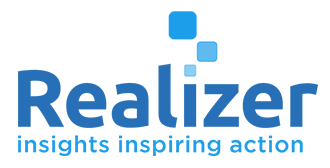On surfing, presenting and betting.
- Rob Pyne
- Oct 21, 2022
- 2 min read
Here are three ideas I’ve been working on and thinking about which may help you.
Idea 1: On being a surfer
This is from a post I wrote on LinkedIn recently which received 246 reactions and 35 comments…

Yesterday I decided the number 1 thing I could do help me a better leader was to....go surfing.
You see, I actually came to Australia 25 years ago with my backpack and a surfboard. Ever since then, I have seen "I am a surfer" as a core part of my identity.
Until this year when for various reasons, I woke up one day and realised I'd become 'someone who occasionally surfs' as opposed to being A SURFER.
And yesterday, I realised that my energy for my work has been a bit up and down. In a conversation with the fabulous Laurent Sylvestre and Judy Riege they helped me realise that sometimes it’s the small things that make a difference.
Like the way I start my day at the beach, or the way I get to have a lunchtime surf, or working outdoors.
Is there something you used to BE or used to DO, something small, which you have dropped? Do you need to pick it back up?
In work, it's important to identify who you are BEING, what you are DOING and what IMPACT you are having. In that order. Who you are being comes first.
So I'm happy to say that I AM A SURFER. And that makes me a better leader.
What are you being, which makes you a better leader?
Idea 2: On Team presenting
While I spend most of my time working with leadership teams, I also have another business – Realizer – which trains people on communications and management. Michelle Pitt is the lead for Realizer these days and she and I wrote a white paper on a topic we think gets missed in presentation training.
Most presentation training assumes that you design presentations alone and deliver all of it solo. But for most of our clients, presentations are written collectively and presented as a team. Each individual just tells part of the story.

As a valued subscriber to this newsletter, you can get this white paper free. It goes through three ways to think about team presentations and how to lift the bar so your whole organisation benefits.
Idea 3: Thinking in bets
Here’s a book that’s inspiring me to think differently.
Thinking in Bets is by Annie Duke, an ex poker champion and cognitive psychologist. Annie challenges us to think in probabilities instead of certainties. Instead of saying "I’m sure that moving to London will be a good decision", she advises to estimate your own confidence: "I am 70% sure moving to London will have a positive outcome".
Sounds like a minor change?
Well, by thinking in bets, you actually may…
1. Acknowledge the important role of luck in any decision
2. Take time to consider the 30% risk and why moving to London might not work
3. Be better able to reflect on and learn from your wins and losses
4. Reduce some cognitive biases such as motivated reasoning, sunk costs, overconfidence
And of course, I’m estimating there’s a 90% chance you could ultimately make better quality decisions.
If you've read the book, what did you think?





Comments